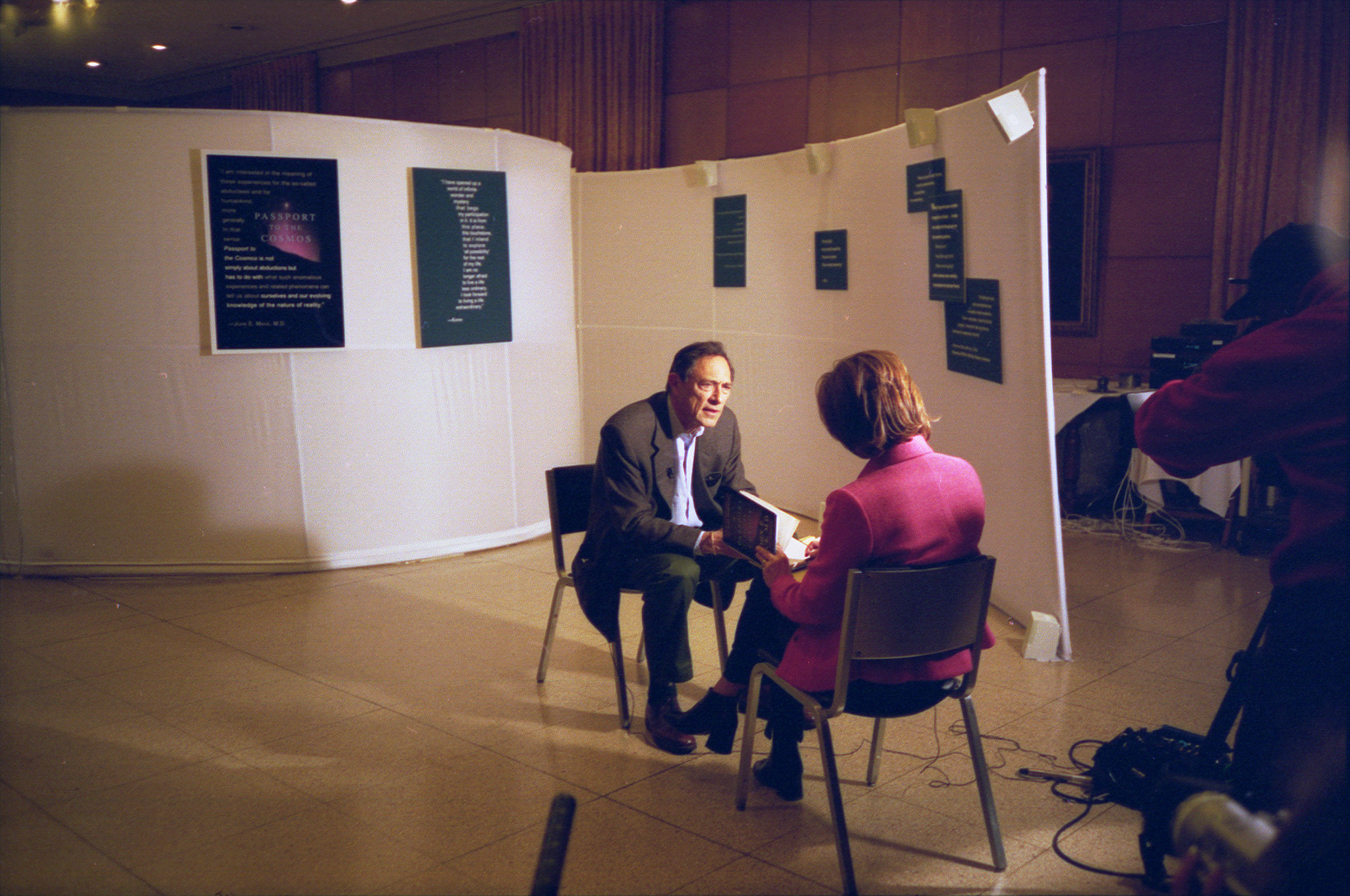November 17, 1999
The Program for Extraordinary Experience Research (PEER) visited New York City in mid-November to formally introduce Dr. Mack’s new book, Passport to the Cosmos, and to present to the public a summary of our current understanding of the nature and meaning of the alien encounter experience. The event was held in the main auditorium of the New York Academy of Medicine on Fifth Avenue.
Before the evening’s presentation, a prototype of a musical piece by composer David Ison was played. Mr. Ison’s composition for PEER, “Voices of the Experience”, features the voices of experiencers excerpted with permission from PEER’s clinical sessions. The music moves from rhythms of fear, to a place of unknowing, to reconnection. The excerpts from experiencers were selected to reflect these stages.
Beginning the presentation, PEER’s clinical director Roberta Colasanti, LICSW, provided an overview of the stages of evolution from trauma to transformation that PEER’s clinical team has seen in working with experiencers.
She stated that the reactions of fear, denial, compartmentalizing, depression, and intense questioning are all parts of the process of adjusting one’s worldview in the face of conflicting information. Using data from PEER’s 80-subject comparative personality study, she examined each of the diagnoses that are typically suggested as explicatory of these experiences, and explained why they fail to adequately account for the phenomenon.
A central question arose from her presentation, namely, “After we have faced the reality of these experiences, what do we do next?”
Dr. Mack then spoke at length about where his exploration of this phenomenon has brought him, and where it may lead our Western culture. Later in the program, they were joined on stage by a woman whose recall of her alien encounter experiences began unexpectedly while she underwent a routine acupuncture procedure.
Rising enthusiastically from the audience at the start of the question and answer period, actor Dan Aykroyd asked how many members of the audience would try to prevent having further experiences if it were possible to do so, and how many would choose to continue having them. Amajority raised their hands in favor of continuing to have such experiences.
An experiencer in the audience spoke of heightened compassion for humanity that arose from having interactions with beings whose telepathic communications seem to flow into her body. She asked the audience to consider how we as a culture could communicate with each other and diminish our isolation from one another — an isolation which, like many experiencers, she feels quite profoundly and is painful for her to see around her. She spoke of the difficulty of living in a culture that does not value or trust other people, let alone visitors from afar.
Pioneering researcher Budd Hopkins joined the conversation to suggest that until we are able to interact with the beings as equals, we should hold them with the same distrust that some people hold the United States government.
The event drew a lot of interest from the media with coverage from Jane Hanson of NBC television, the New York Times, and the Boston Globe. An audio excerpt of Jane Hanson’s interview with Dr. Mack (which was not aired) is available:
